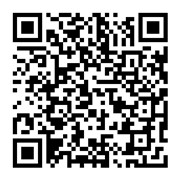学完虚拟语气三种时态,例句都能轻松掌握
通过学习虚拟语气的三种主要时态,我能够轻松掌握并运用它们。首先,过去式虚拟语气用于与现在事实相反的假设,例如:“If I were you, I would accept the offer.” 这个句子的意思是,如果我是你,我会接受这个提议。这里,“were”代替了“was”,因为这是与现在事实相反的假设。
其次,过去完成式虚拟语气用于与过去事实相反的假设,例如:“If I had studied harder, I would have passed the exam.” 这个句子的意思是,如果我当时学习更努力,我就会通过考试。这里,“had studied”和“would have passed”都是过去完成时的虚拟形式。
最后,将来时虚拟语气用于对将来情况的可能性进行推测,例如:“If it rains tomorrow, we will cancel the picnic.” 这个句子的意思是,如果明天下雨,我们会取消野餐。这里,“will cancel”是将来时的虚拟形式。
通过这些例句,我不仅理解了虚拟语气的用法,还能够在实际写作和口语中灵活运用它们。


